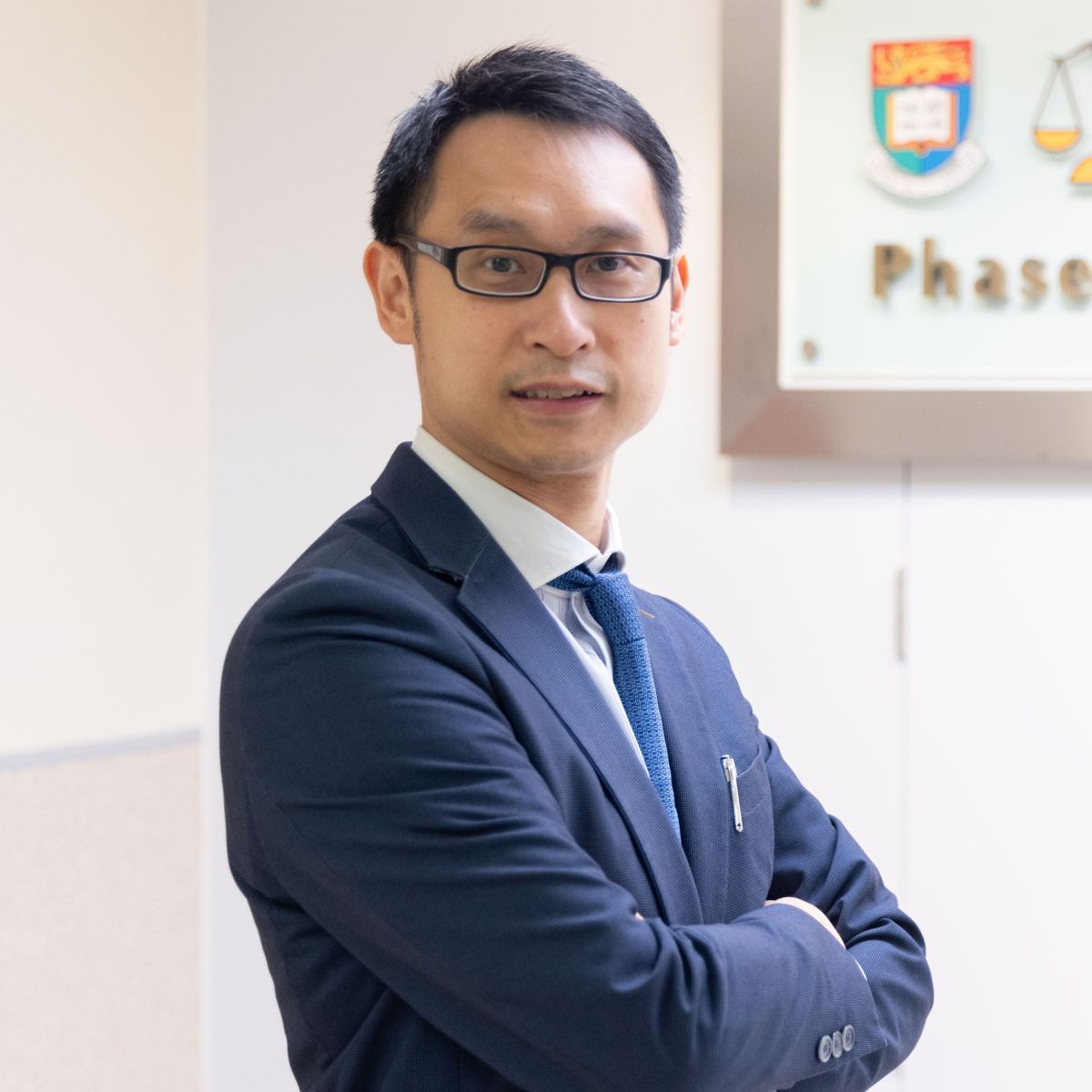
Professor Desmond Yap
Nephrologist
Unraveling the Pathogenesis of Renal Diseases and Protecting Kidney Function
Professor Desmond Yap is Clinical Associate Professor at HKU Department of Medicine and Medical Director of HKU Phase 1 Clinical Trials Centre. His research pertains to the glomerular diseases, focusing on how the immune system may affect the kidneys. These works will potentially help prevent the development of chronic kidney disease (CKD) and retard its progression among younger patients.
Finding new treatments and Preventing Kidney Fibrosis
“Acute Kidney Injury (AKI) and CKD are two main types of kidney problems. Fibrosis is a final common pathway in many kidney pathologies, especially in patients without timely interventions of AKI and CKD, and is associated with decline in renal function. Acute loss of blood, infection or dehydration are common drivers of AKI while CKD is often caused by various chronic medical illnesses such as diabetes, hypertension, autoimmune disorders. Indeed, CKD is one of the most prevalent diseases in Hong Kong, and importantly nearly half of new cases with renal failure requiring dialysis or kidney transplant every year is due to diabetes.” Professor Yap explained.
Professor Yap’s current research interests are immune-mediated glomerular diseases, with emphasis on lupus nephritis and membranous nephropathy. He has been actively involved in a large-scale clinical trial on lupus nephritis spearheaded by the HKU Nephrology research team. The study compares the efficacy and safety of two existing drugs, namely mycophenolate and tacrolimus, in combination with steroids for the treatment of lupus nephritis. This multi centre study also involved various participating sites in Asia including those from China, Japan, Singapore, Malaysia and Thailand.
Encouraging Public Participation and Establishing the Social Values of Clinical Research
“While the public shows better understanding of clinical trials, the enthusiasm of CKD patients to participate in clinical research tends to be relatively lower than those with cancer. This may be related to the fact that CKD is often silent and indolent, and current treatments such as dialysis can prevent death in these patients.” Professor Yap said. As an investigator, Professor Yap provides patient-centred professional advice to study subjects, with balanced information on the risks/benefits of clinical trials and their alternatives. This will help study subjects to better understand the clinical trial and make informed decisions/consents. “Clinical trials will enable investigators to ascertain the effect of a drug/intervention and hence develop more efficacious and novel treatments than existing therapies. This will potentially bring about benefits not only to individual subject, but also to other patients with similar condition, their families, and the society as a whole in the long run.” he added.
Leading Phase 1 Clinical Trials and Accelerating New Drug Development
As the Medical Director of HKU Phase 1 Clinical Trials Centre, Professor Yap highlighted the importance of phase 1 clinical trials: “Phase 1 clinical trial is the first step of translating basic research findings into clinical therapeutics. Phase 1 study will establish the safety, tolerability, interactions, pharmacokinetics and pharmacodynamics of experimental drugs, laying down the foundation for later stages of clinical trials. Without Phase 1 trials, it is not possible to proceed to the next stage of drug development and patients will not have the chance to receive these new therapeutic agents”.
Among the numerous clinical trials led by Professor Yap, one phase 1 study that investigated a novel monoclonal antibody treatment for autoimmune diseases is particularly pleasing and memorable. The research findings have been published in a renowned scientific journal Clinical and Translational Science. “That investigational drug has been developed by a startup biopharmaceutical company, which later successfully went IPO (initial public offering) on HKEX after completing the phase 1 trial to raise funds for accelerating further research and development. Encouraging clinical data has also been observed in subsequent phase 2 and 3 trials for myasthenia gravis - a rare immune-mediated neurological disease, and an application for marketing approval has been submitted to a regulatory authority some months ago,” Professor Yap said.
The Phase 1 Clinical Trials Centre has supported over a hundred clinical trials since its establishment, and its facilities, management and operation model have been referenced by other research centres. Professor Yap believes that, with the rich experience of HKU investigators coupled with a wide spectrum of professional services provided by HKU-CTC (e.g. identifying suitable investigators for research projects, contract management, submission of ethical and regulatory approvals), the Phase 1 centre will continue to expand collaborations with biopharmaceutical industry worldwide and help advance medicine and patient care. “Good clinical research can confer huge benefits to patients and also bring satisfaction, which will support clinicians and investigators to overcome obstacles and persevere with ongoing research”. Professor Yap wishes that the torch of clinical research can be passed on to upcoming doctors and researchers, enabling patients and investigators to walk hand-in-hand to achieve better outcomes.
